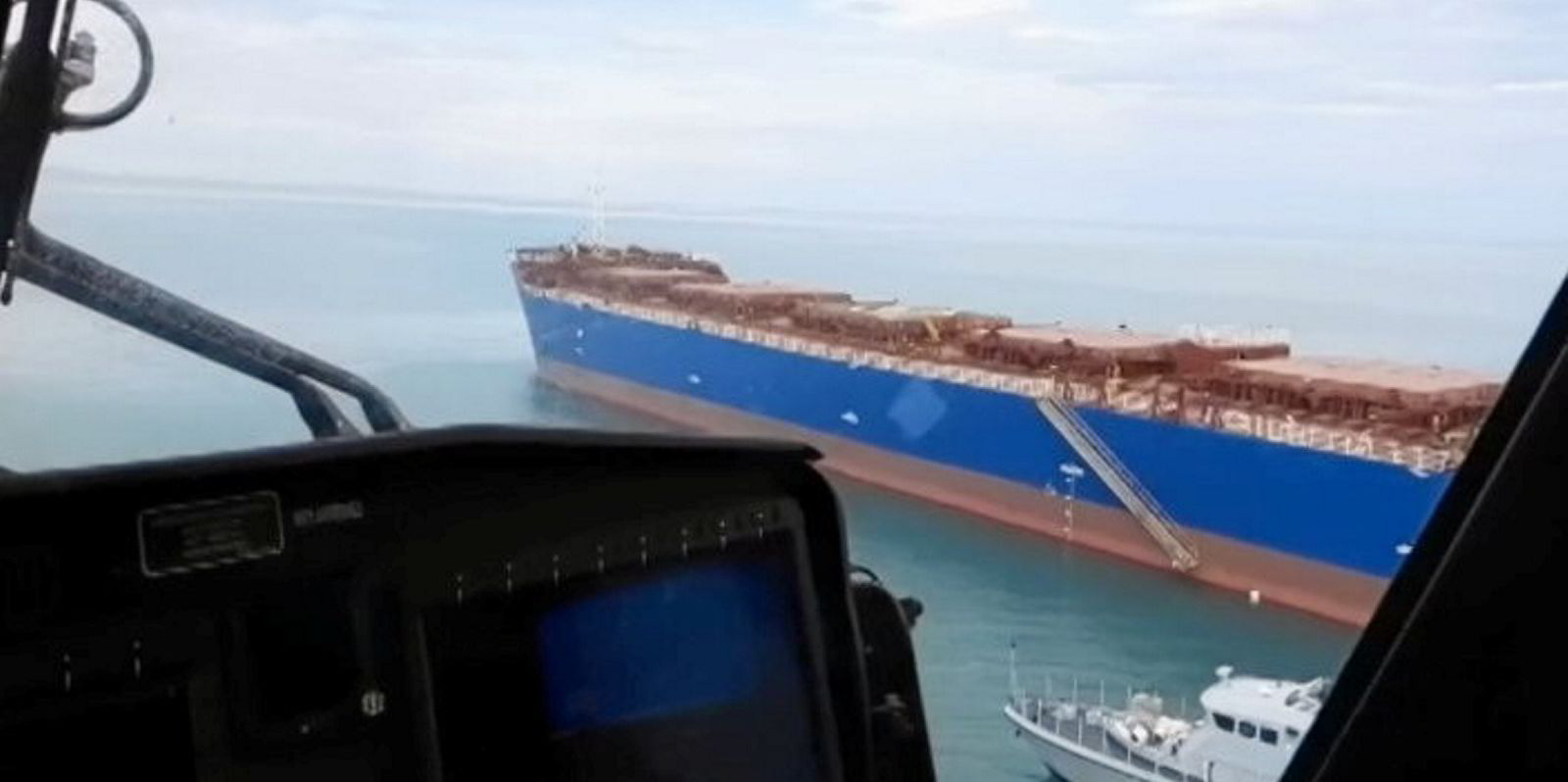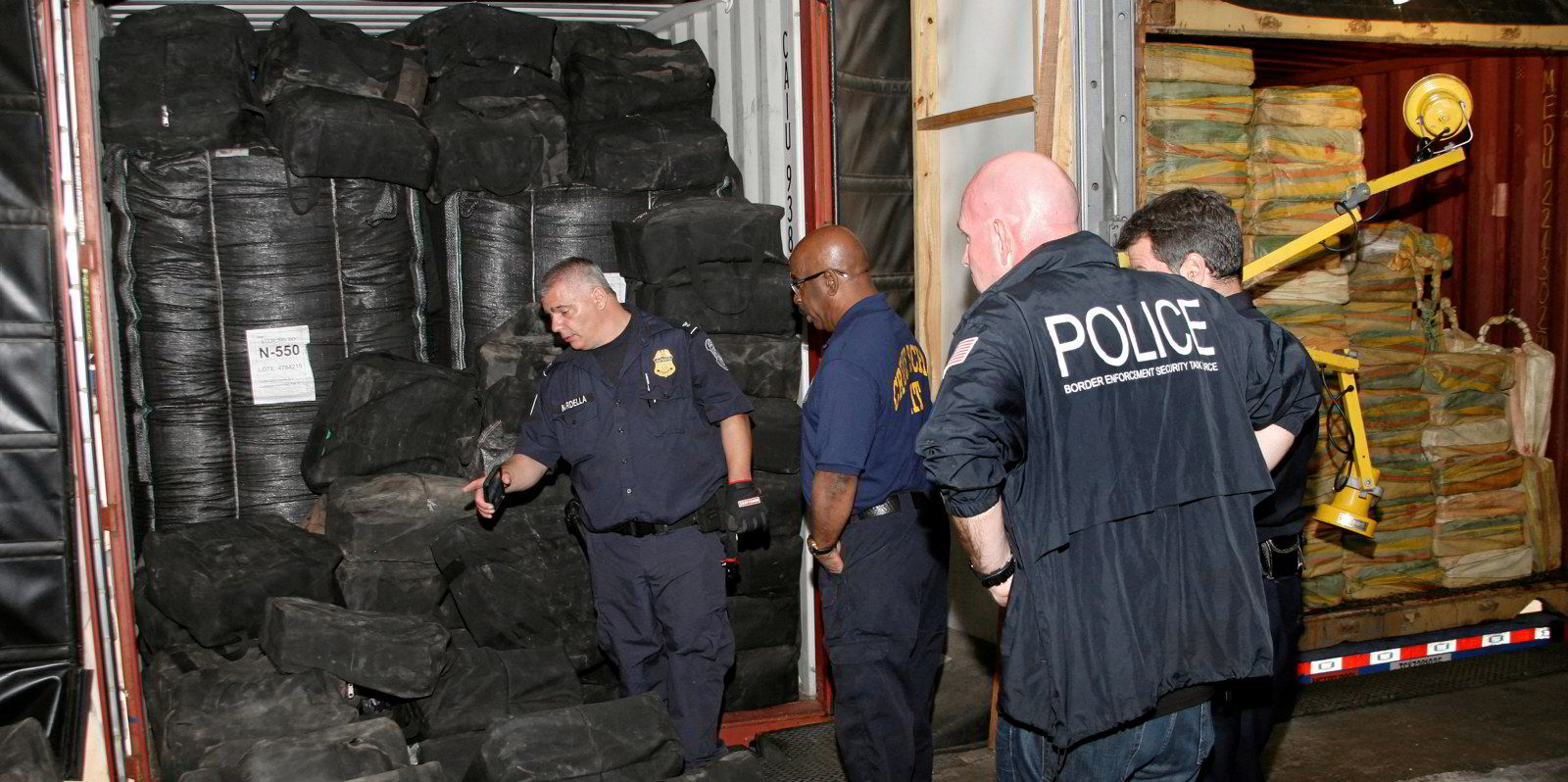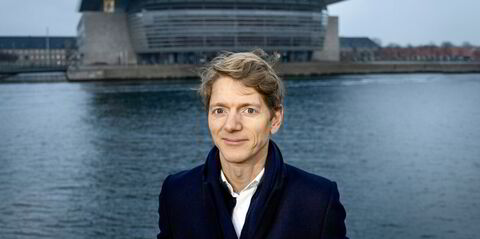Italian authorities have found cocaine worth €150m ($164m) hidden on a Laskaridis Shipping bulker in Venice.
Helicopter footage showed a number of customs vessels surrounding the Greek-owned, 75,100-dwt Atlas (built 2012).
Officials were then shown studying plans of the Liberia-flag ship before divers are sent to inspect the hull.
Blocks of drugs wrapped in black plastic are recovered and tested on a speedboat.
The Guardia di Finanza law enforcement agency said a total of 570 packages were found, weighing 850 kg.
The vessel was subject to further inspections on Thursday.
None of the seafarers on board have been arrested.
Several searches were needed to find the drugs, starting on Tuesday.
Commercial manager Laskaridis said in a statement it is assisting local authorities and law enforcement agencies in Italy with their investigations.
The “suspected contraband, believed to be cocaine,” was found in the vessel’s sea chest about 11 metres below the waterline, it added.
Not accessible from the vessel
The sea chest is a part of the vessel that is not accessible from on board and can only be reached by divers.
“The crew have granted their full cooperation to the authorities’ investigation, which ascertained that neither the master nor the crew were involved in any way to the relevant event,” the manager said.
“The contraband was found by the local authorities while the vessel was in the Venice, Italy, anchorage. Since then the vessel has proceeded to berth, as per the original schedule, and commercial operations to discharge have been progressing smoothly,” Laskaridis added.
The bulker had left Santos in Brazil on 23 March and arrived in Venice on 17 April, via Gibraltar for bunkering.
Container ships are more usually targeted for drugs smuggling, but other vessels can also find themselves used unwittingly by gangs.
Last month, European police agency Europol said more than 200 tonnes of cocaine have been transported through the European Union’s two busiest ports by criminal gangs after they secured unique container codes from corrupt insiders.
A report by the agency revealed the tactic has been growing since 2018, when the port of Rotterdam discovered that containers were going missing, turned up at the wrong places or had been dumped.
Gangs pay hundreds of thousands of euros to corrupt insiders involved in shipping logistics to hand over the unique computerised details of a container that is assigned once payment has been made for transport. The practice is known as PIN code fraud.




